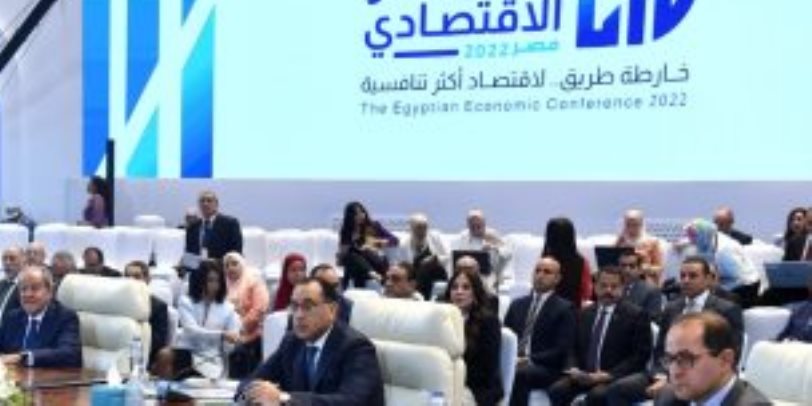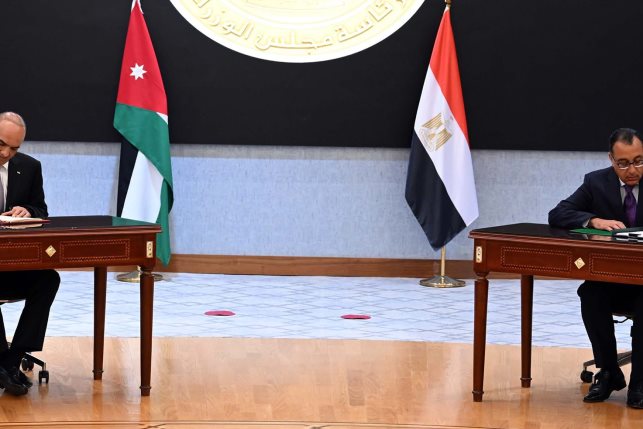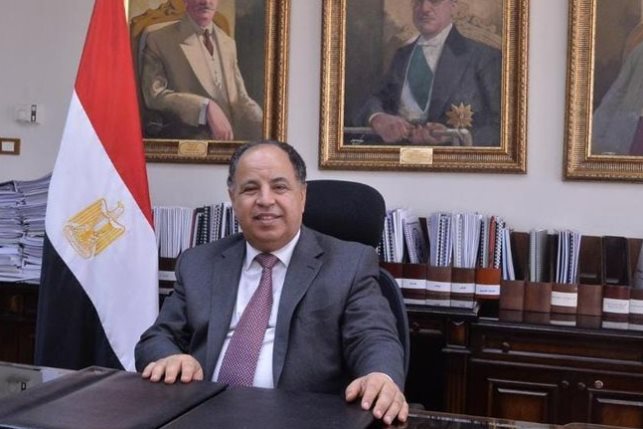Cabinet announces important recommendations made at the Egyptian Economic Conference
These are based on the opinions and interventions of experts and specialists who participated in the conference sessions during the three days of its holding, explained Diaa Rashwan, head of Egypt's Journalists Syndicate

As the Egyptian Economic Conference comes to a close, the cabinet has released a list of the recommendations and proposals issued and approved during the conference.
These are based on the opinions and interventions of experts and specialists who participated in the conference sessions during the three days of its holding, explained Diaa Rashwan, head of Egypt's Journalists Syndicate and general coordinator of the National Dialogue in a statement published by the Cabniet.
Rashwan stated that the conference reached 200 recommendations, adding that the government has decided to form a committee to follow up and implement them.
Fiscal and Monetary Policy
On the axes of fiscal and monetary policies, the recommendations included working to continue reducing the debt-to-GDP ratio, maintaining Egypt’s ability to achieve a primary surplus to boost the state’s ability to pay its obligations, as well as accelerate efforts to activate the derivatives market for currency and futures contracts as a tool against the risks of exchange rate fluctuations.
Additionally, the speed of reaching an agreement with the International Monetary Fund and the importance of exchange rate flexibility to reflect market dynamics of supply and demand as a tool to absorb external shocks.
Private Sector Participation
On enhancing private sector participation, the recommendations included expanding the ownership base by focusing on exits via prioritizing publicly listing on the Egyptian Exchange, followed by increasing their capital through the entry of strategic investors and specifying periods of time for approval of requests submitted by investors, so that the delay in the entity’s response is considered an implicit approval to start practicing the activity.
It also includes boosting the Sovereign Fund of Egypt’s role in the private sector by transferring a number of state-affiliated companies to it, as well as expediting the disbursement of export subsidies to the sectors eligible for support, once the supporting documents are submitted.
Priority Economic Sectors
When it comes to priority economic sectors, the recommendations included reforming the system of cooperatives and unions associated with agricultural activity, through structural, institutional, financial, and administrative reform, in order to support their ability to play a greater role in the food security file, including cooperative marketing, production requirements, and contract farming agricultural extension, agricultural groupings, and others, in addition to finding rapid transport lines to enable fresh agricultural exports to reach the target markets as these perishable products, with a focus on lines that are of relative importance and have a relative weight in the volume of agricultural exports.
Recommendations also included facilitating obtaining financing loans for health projects, especially in new communities with soft loans and distinguished interest, as well as facilitating partnership procedures with the state in existing and new hospitals, through the private sector management of health facilities under the franchise system. In addition to providing an integrated package of tax and financing incentives.
This is to encourage the private sector to provide a variety of educational services commensurate with the different segments of society, especially the middle class, and in a manner that takes into account the objectives of spatial development in the different governorates, Rashwan explained.
Studying the introduction of amendments to the contracts for connecting electricity to factories so that they become bankable, as well as taking executive measures that would export real estate globally, and promote the real estate product through the state and the private sector, with the importance of developing a supportive and stimulating executive framework was also included.
In addition to establishing a special economic zone for the high-tech information and communication technology industry in the near term, resorting to the whitelist mechanism in which these companies are registered, in addition to unifying the entity for collecting fees for investors in the tourism sector, with the speedy issuance of the executive regulations of Law No. 8 For the year 2022, regarding the issuance of the Hotel and Tourist Establishments Law, Rashwan added.
To create a reliable industrial base and to provide hard currency, there was a recommendation for the expansion of the local manufacturing of railway mobile units, electric tracks, and spare parts.
Furthermore, it included the recommendation to expand the participation of both local and foreign private sectors in the management and operation of all transport facilities, which would allow for the exchange of experience and ensure good services are provided to users and maintained while working to amend legislation, laws, and regulations.
Developing Industrial Sector
For the development of the industrial sector, the recommendations included the speedy completion of the integrated vision of the national industry strategy, targeting some important industries, and deepening local manufacturing, especially in the engineering, chemical, textile, and food industries.
To develop industrial exports, programs must be created to respond to export burdens and facilitating procedures for accessing new markets, activating the role of commercial representation offices and international exhibitions.
The final recommendation is to transform industrial areas into integrated residential cities and provide more housing for workers to reduce the cost of their transportation and grant land to factories.





